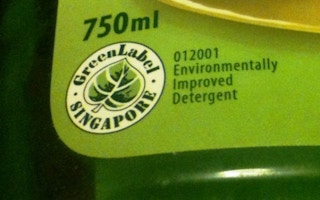Singapore’s most widely recognised green product certification scheme was itself certified at an international conference on eco-labelling recently in Taiwan.
The move will allow eco-labelling to be standardised across countries, making it easier to market green products internationally.
After a peer-review process, the Global Ecolabelling Network (GEN) - an international non-profit association of independent eco-labelling organisations - officially accredited Singapore’s Green Label scheme as a ‘type 1’ certifier. ‘Type 1’ identifies the scheme as a voluntary system that effectively incorporates multiple criteria such as examination of the overall life cycle of products.
Managed by the independent non-government organisation (NGO) Singapore Environment Council (SEC) since 1999, the Green Label scheme is the Republic’s only eco-labelling system.
SEC executive director Jose Raymond said in a statement he was proud the Green Label had stood up to GEN’s stringent scrutiny, and that SEC would continue to develop criteria for new and existing product categories for the scheme.
“By constantly improving the credibility and distinctiveness of the Green Label, we hope that the already familiar logo will become an instantly recognisable and trusted symbol of environmentally preferable products,” he added.
That recognition will extend beyond Singapore’s borders.
The GEN certification qualifies the Green Label scheme managers to sign agreements with eco-labelling agencies in other countries, which will reduce the cost and effort required for manufacturers to have their green products recognised in foreign markets.
Products that have been certified by one GEN member scheme would not need to be retested within other network member countries for the same criteria, meaning that manufacturers can market their certified green products in multiple countries with fewer costs.
Mr Raymond noted that this provided extra value to companies applying for Green Label certification. “We hope that more manufacturers will avail themselves to this attractive opportunity for regional outreach by applying for the Green Label certification,” he said.
He further noted that, closer to home, Singaporean consumers will benefit from a greater range of eco-labelled consumer products, making their environmental purchasing decisions simpler and more consistent.
“For example, the same construction manager who chooses Green Label-certified cements containing recycled content and paints low in volatile organic compounds at the workplace can pick up detergent, dishwashing soap or light bulbs on their way home (using the same) Green Label (to choose),” added Mr Raymond.
Within Singapore, Green Label certifications have been awarded for over 1,900 products in categories which include home appliances, construction materials, personal electronics and other consumer products.
However, not everyone agrees on the effectiveness of eco-labelling.
A study published in North America last year by independent market research firm TerraChoice found that over 95 per cent of products surveyed were using misleading green claims, known as greenwashing, on their packaging.
The same study found that third-party certification systems, which are labelling schemes audited by independent reviewers, prevented some greenwashing but did not eliminate it. Under these labelling schemes, the number of products found guilty of greenwashing were less than 70 per cent.
Meanwhile, confusion due to increasing numbers of labels - a Greenpeace study from 2009 found over 400 different labels in use throughout North America - has added to consumer mistrust of eco-labels. To address this, consumer advocacy groups are starting initiatives such a United Kingdom database created to guide shoppers and businesses through the criteria for the many eco-labels in use.
An SEC spokesperson told Eco-Business that Singapore’s Green Label Scheme avoided problems such as these by being part of GEN, which has only 28 qualified members worldwide and requires transparent processes and criteria.










